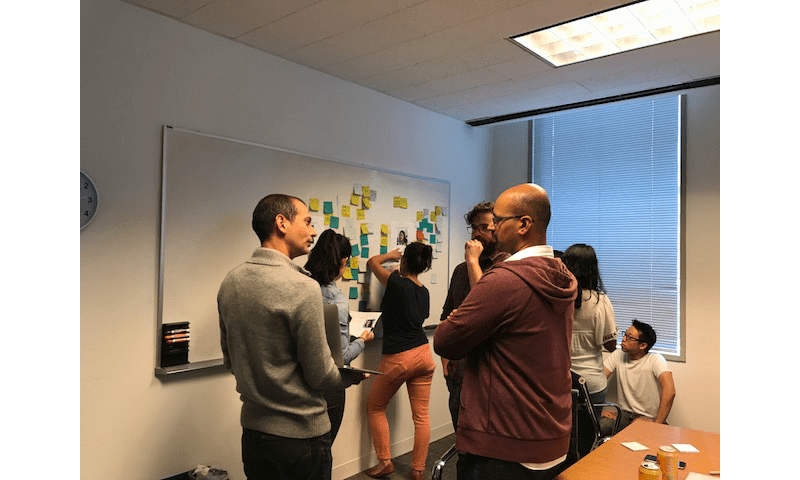Help Yourself: Asking For Help Can Make You a Better Researcher

Back when I was young and invincible, my dad told me to get health insurance and offered to help pay. “Nah, I’m fine,” I said. “I don’t want to spend the money.” In his patient, professorial way, Dad responded, “Sarah, if you don’t get insurance and something major happens, I’m going to be paying for your medical bills the rest of my life.”
In other words, “if you won’t take my help for yourself, at least do it for me.”
Fast forward a few jobs (and health insurance plans) later, I work happily as a user experience researcher, a role that requires serious outreach skills. If you’re also a researcher, whether on the in-house or agency side, it’s likely you’re the sole researcher on a team, if not in the entire company. And for lots of reasons, it can be challenging to seek support. Here are a few reasons that have crossed my mind:
- You were hired to be the expert
- You work at a company of self-starters, go-getters, and over-achievers
- You live in a culture of self-starters, go-getters, and over-achievers
- You’re fiercely independent
- You don’t want to bother people
If any of these sound familiar, then you’ve probably also encountered some of the resulting scenarios:
- You’re in a meeting and everyone but you seems to know what’s going on
- You want to try a new method or approach but don’t know where to start
- You’re afraid to ask a question. Or for feedback or a gut check
- You stay late—again—because, damn it, you’re the expert and you should be able to figure this out on your own
While your teammates are indeed looking to you for expertise, having specialized skills does not preclude you from leaning on your team for their input and expertise. Quite the opposite: the more you pull others in, the more effective you’ll be as a researcher. By contrast—and this was a huge epiphany for me—if you’re hoarding the research experience, you’re getting in the way of your and your team’s success.
When you find yourself in that situation, that’s your cue: ask for help. If not for yourself initially, then at least for your team.
What does asking for help look like? If you’re as fortunate as I’ve been to work for companies that are hungry to learn from customers, there are lots of ways to get your co-workers involved (and if your company is not, you have a much larger problem). Here are a few approaches that have worked for me:
Ask the dumb question. Chances are, you’re not the only one wondering, and the question might inform the research. During one of my first project kickoffs, I looked at the product brief and puzzled internally, “How much of this do we already know? And how do we know it?” Once I got past the fear of looking clueless, I asked those questions and soon got a clear picture of what and how much research we needed. That experience also made me see the value of asking to discuss the product brief before each project kickoff.
Co-create the discussion guide. Once you get in the habit of discussing the product brief with your teammates, you might naturally start drafting your research approach together as well. I’ve learned a ton from working closely with my PMs and designers to turn hypothesis statements into research interview questions. The other benefit of collaborating on a discussion guide: if I—or one of my teammates—can’t join a research session, we can cover for each other with full confidence that we’ll get what we need.
Recruit from across the company to observe research sessions. Better still, ask someone to take notes, hold the camera, or co-lead a session with you. On one field usability test, an engineer—my volunteer camera-person—came back from the session with a first-hand view of people using our product, as well as a long list of bugs that he filed as soon as we got back to the office.
Mix up your methods. Ask your teammates about their previous experience with different research or synthesis methods. People like being asked, and who couldn’t use more research tools? Recently, another researcher and I were trying to draft a guide for a particularly complex concept test when she stopped and suggested, “Hey, why don’t we try a card-sorting exercise instead?” The card-sort ended being fun for both our participants and our team, and gave us a more direct view into our participants’ mental models.
Hive-mind your findings. Host a group synthesis session with your stakeholders. While this will require some pre-work and guidance on your part, it’s so worth it: you’ll capture a range of perspectives and details, and the team will carry the emergent insights with them—because they helped shape them. After a recent round of generative research with a specific set of users, I was ready to give these personas a refresh. I had a choice: I could squirrel away with the mountain of data my team and I had gathered. Or I could grab everyone for an hour and run a group synthesis workshop, which I opted for. The newly refreshed personas do, in fact, reflect a nuanced distillation of the findings. Plus, we had a great time collaborating.

Asking for help with your research is a win-win-win. You get the hands and minds to help scale your research program. You and your stakeholders develop empathy for your customers. And you all end up making a product that people will use because it was designed with them in mind.
Still hesitant to ask for help with your research efforts? Do it anyway. If not for yourself, then at least do it for your users.
